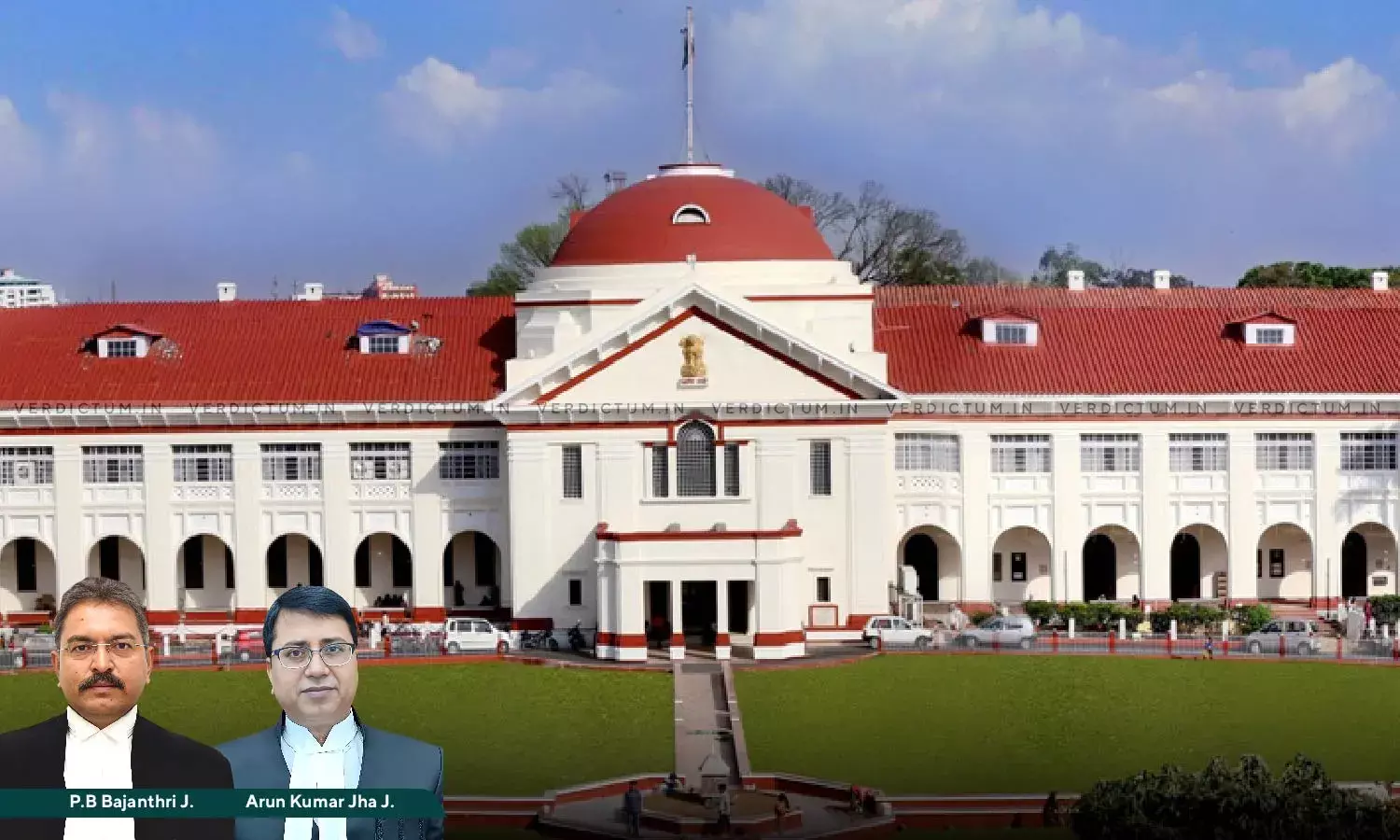If ‘Saptapadi’ Has Not Been Completed, Marriage Won’t Be Complete & Binding: Patna HC While Annulling Marriage Held At Gunpoint

The Patna High Court has annulled a marriage held at gunpoint in the year 2013 saying that if ‘Saptapadi’ has not been completed, marriage would not be considered to be complete and binding.
The Court annulled the marriage of a Constable who was abducted and forcefully married to a woman. He had filed an appeal under Section 19(1) of the Family Courts Act, 1984 against the judgment of the Family Court which had dismissed his petition filed for decree of nullity of marriage.
A Division Bench comprising Justice P.B. Bajanthri and Justice Arun Kumar Jha observed, “… it is obvious that when such rites and ceremonies including Saptapadi the marriage becomes complete and binding, when seventh step is taken. Conversely, if ‘saptapadi’ has not been completed, the marriage would not be considered to be complete and binding. Now, the respondent has claimed that all rituals were performed and ‘saptapadi’ was complete. It is surprising that Pandit who performed the marriage ceremony has no knowledge about the essentials of the marriage and his deposition is not clear about the place of marriage. The photographs of the purported marriage cannot help the case of the respondent since it has not been properly exhibited and could not be considered admissible.”
The Bench said that it is not the case of the appellant that no marriage was ever solemnized rather it is his contention that he was forced into marriage and hence, even if the photographs are taken into consideration, it cannot be said that the marriage was being solemnized without any outer influence.
Advocate Jitendra Kishore Verma represented the appellant/Constable while Advocate Shashank Shekhar represented the respondent/woman.
In this case, the appellant who was the Constable in communication coy Section ‘A’ along with his uncle had gone to Ashok Dham Temple in Lakhisarai for worship. When he and his uncle was purchasing materials for worship, three persons, all of Village Chauki, along with six unknown persons who were armed with pistol and knives came and surrounded him and his uncle. These persons brought the respondent i.e., a woman near him and threatening him with life at gun point and dagger, forced him to put vermillion (sindur) to her forehead. On resistance being shown by the Constable, he was assaulted with slaps and fists. Finding no way out as being in custody of the aforesaid persons, the Constable put sindur on the head of the woman but without any religious or spiritual rites and rituals.
After performance of the so-called marriage, the Constable and woman were kept confined in a dark room in a house. After sunset, the Constable’s uncle was set free and he was asked to come with his family members along with ornaments and clothes for the woman as the marriage was performed. Thereafter, the uncle informed the police about the incident but the police did not register the case. On the same night, the Constable somehow managed to come out of the said house and went to inform the police about the incident but again the police did not take any action. Thereafter, he reached his village and since he was required to join his duty immediately, he went to his service place and after getting leave, he filed a case.
The High Court in view of the aforesaid facts noted, “Once the petitioner put forward his claim about he was being forced into the marriage and marriage not being performed according to rites and rituals and, subsequently, criminal case has been registered against the respondent and others, the onus was on the respondent to rebut the contention of the petitioner by showing that the marriage was solemnized following all rites and rituals and it was a normal marriage. However, the evidence discussed herein above is not supportive of the case of the respondent. The respondent has utterly failed to rebut the contention that the petitioner/appellant was not forced into marriage. The respondent’s side has prevaricated even regarding the place of marriage.”
The Court said that the Family Court adopted its own reasoning for disbelieving the case of the petitioner but its view is flawed. It added by saying that the Family Court went on the premise that the petitioner did not immediately lodge the complaint either to the police or to the court and this gap makes the case of the petitioner disbelievable.
“As discussed herein before, the petitioner has explained the situation and there is no undue delay, even the petitioner took steps post marriage through his Officer in the Army Command. So, it cannot be said that the petitioner slept over the matter. … When the learned Family Court expressed his opinion that photographs has not been examined, it was not open for the Family Court to rely on the same documents. Then, in absence of material to otherwise, the learned Family Court’s finding that not performing the ritual of ‘saptapadi’ does not mean that marriage was not performed, is devoid of any merit”, further noted the Court.
Accordingly, the High Court allowed the appeal, set aside the judgment of the Family Court, and annulled the marriage.
Cause Title- Ravi Kant v. Bandana Kumari


